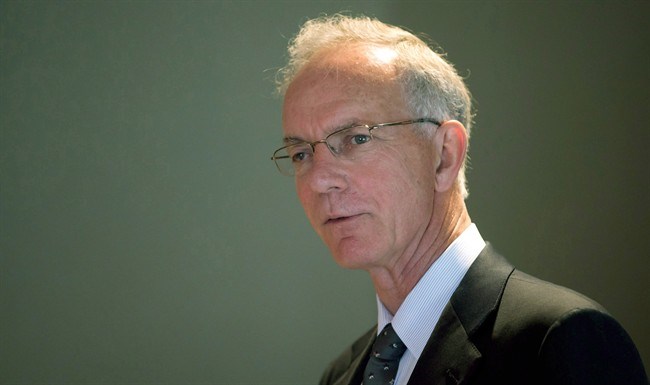Victoria newspaper mogul David Black says he has the financing in place to fund his plans for an oil refinery in Kitimat.
In a speech to the B.C. Chamber of Commerce in Vancouver, Black said while deals have yet to be signed, he believes commitments to fund a $25 billion refinery project are 100 per cent solid.
“I hope to sign this within the next 30 days; we haven’t signed it yet,” Black said. “How solid is (the commitment)? I would say it’s 100 per cent, in this case the financiers are very anxious to help get the refined fuels from Canada.
“I’m sure we will get through to the finish and I’m sure that money will be there.”
Black, who owns about 150 newspapers in Western Canada and the U.S., has floated the idea of building a refinery in northwest B.C. — the first new refinery to be built in Canada since 1986 — to handle 550,000 barrels of oil per day.
The plan, met with a mixture of skepticism and enthusiasm from B.C. businesses, was initially designed to change the discussion on the proposed $6 billion Northern Gateway oil pipeline.
Black, who believes the refinery could be in service by 2020, has touted the project as an alternative to shipping the bitumen that would be piped through Enbridge’s proposed pipeline.
He reiterated Wednesday that shipping refined products like diesel and gasoline, which float and will evaporate, is safer than shipping crude oil.
“I didn’t get into this to try and make more money for myself in a new industry, at the age of 65,” Black said. “I’m a sailor and I love the B.C. coast. I got into this to ensure we don’t threaten the coast by putting bitumen into tankers.”
Richard Cooke, managing director of the Oppenheimer Investment Group which has been working with Black on the project, told the chamber the money will be there and the project will be debt financed — the consortium of investors will sign contracts but not be partners in the project.
“We have arranged and we have funding committed to this whole project,” said Cooke. “David talked about a commitment of $25 billion, the people behind us, the consortium we have put together have acknowledged they will support that total sum.”
Black’s $25 billion figure includes $16 billion for a refinery, $6 billion for a bitumen pipeline from Alberta, and a $2 billion natural gas pipeline to fuel the refinery. It may also include $1 billion for tankers to transport the refined fuels.
The cost of the refinery has increased by $3 billion since Black first floated the idea last fall. A change in technology caused the increase, Black said.
“We were going to have the cleanest and greenest oil refinery in the world — we have decided to change the configuration to make it even cleaner,” he said.
Black said that change will cut in half the estimated seven million tonnes of greenhouse gas emissions each year.
Black told the chamber that once he has put together the rest of the building blocks for the refinery he intends to focus his energy on the pipeline, which has drawn protest across the province. “I believe we can build it intelligently and operate it safely,” he said.
But the refinery idea may not die even if the pipeline never comes to pass.
Black said if the province “remains set against the pipeline then oil will come to the refinery by rail.” He estimates it would take six trains with 120 cars each day to provide the same amount of bitumen as a pipeline would.
aduffy@timescolonist.com



